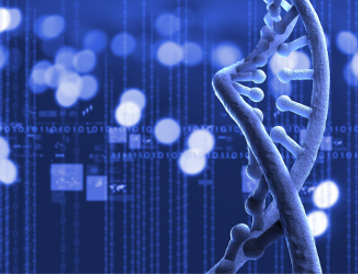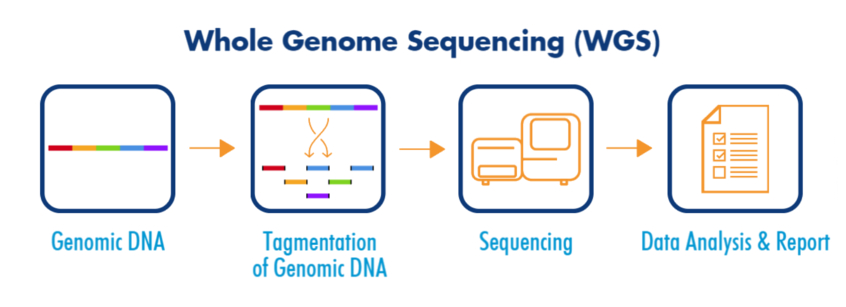Whole Genome Sequencing (WGS)
wgMLST uses WGS datas (assembled or not) to complete MLST analysis on a genome extense scale. For each sample, locus presence is analyzed and, when present, allele variants are determined. For each locus, new sequences are assigned new consecutive allele numbers. wgMLST is progressively being advised for subtyping purposes at any taxonomic level. MultiLocus Sequence Typing data provides close-to-ultimate discriminatory power to differentiate isolated bacterial strains.
The wgSNP bioinformatic pipelines detects SNP variants by mapping the WGS reads to a reference sequence. This approach has been also demonstrated to be suitable for bacterial strain genotyping/strain typing.
Moreover WGS would give the opportunity from genomic data achievable to predict set of genes that contribute to the virulence of a bacterium even for resistome and antibioresistome map of bacterium.
Bacterial WGS holds serious promise for enhancing pathogen diagnostics, as well as industrial, agricultural and environmental strain exploration. A variety of applications including comparative genomics (i.e. differentiations between strains, strain typing) can be evaluated through WGS.
WGS has greatly transformed the field of epidemiology and is particularly useful for investigating outbreaks of foodborne diseases. WGS allows differentiation between outbreak and non-outbreak strains of foodborne pathogens by comparing their microbial genomes. It has been confirmed that strain typing foodborne pathogens by WGS gives superior resolution to existing subtyping methods such as pulsed-field gel electrophoresis (PFGE). WGS is now used as a method by the FDA and the CDC in the United States to characterize Salmonella and Listeria monocytogenes food and clinical isolates.
Agri-food chains are increasingly interested by these techniques to identify perfectly the contamination source and assess the risks associated with contaminating bacteria.
From isolated strain to final report
Mérieux NutriSciences NGS sequencing facilities provides a total solution to our customers, from raw material to final analysis.
- DNA extraction from isolated strains
- Library construction
- Sequencing on Illumina® MiSeq® system
- Bioinformatics analysis of the sequencing data (bioinformatics pipeline with the use of Applied Maths/Bionumerics applications, a bioMérieux Company)
- A detailed scientific report including tables and graphs that summarize information on the different samples and complete method summary
Quality standards applied to the sequencing services are fully in line with ISO 9001 standards and expert professional recommendations.
Our network from expert Food Science Center laboratories (Food scientists, biomolecular experts, bioinformaticians) supports your projects and tests from the study design to final report. Everything is adapted to fit your needs, from specific biomolecular technique to bioinformatic pipeline and data storage. Mérieux NutriSciences offers expert analysis and recommendations to add value to complex sequencing results for practical application and enhanced food safety and quality.




